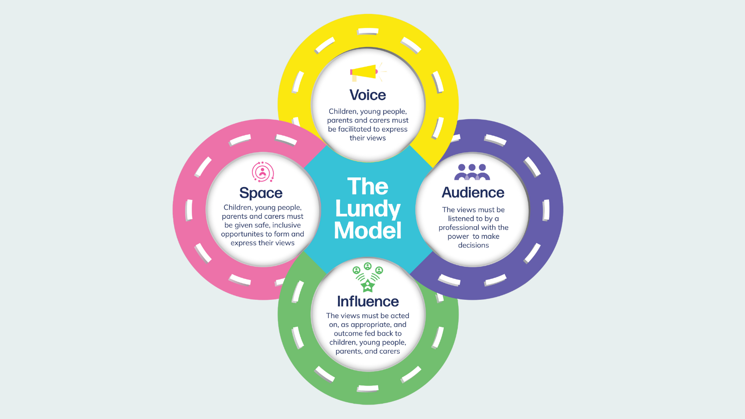Young people’s rights
Children and young people have a right to have a say in all decisions which affect them (Article 12, UNCRC). They have the right to express their views and for their views to be taken seriously. This includes having a voice in how services are designed and delivered, and how outcomes measures are used.
At CORC and Anna Freud, we use the Lundy model to help us uphold this right. The Lundy model centres around four elements which are vital to meaningful participation for children and young people:
- Voice: children must be facilitated to express their views in a way that works for them
- Space: children must be given safe, inclusive opportunities to form and express their views
- Audience: their views must be listened to by someone who can make change
- Influence: their views must be acted upon, as appropriate

How these rights are upheld will look different for each child and young person, and each service. Services must make sure that children of all ages, backgrounds and abilities can express their views and be heard.
No matter how old you are, who you live with or what your experience with mental health is, you deserve to be treated fairly and given the same rights as everyone else.
This short film, made with young people, portrays how it feels for them to have their voices heard and acted upon when they first access services, bringing the Lundy Model to life.
You can learn more about the Anna Freud approach to young people’s participation and the Lundy model here:
Anna Freud's Participation Strategy
In this blog, Rachael Stemp talks about our Lundy model approach to participation in research at CORC